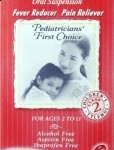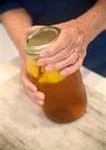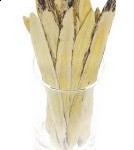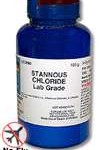McNeil Consumer Healthcare (the makers of TYLENOL®) are recalling many of their children’s Tylenol common cold and allergy medications. Two dozen varieties of their products are voluntarily being pulled off the shelf because of a possible bacterial contamination.
By Rene Rodriquez, L.Ac.
Johnson & Johnson McNeil is taking precautionary steps to urgently and voluntarily recall some of the Tylenol product line after an internal lab test found bacteria in the raw material that went unused in the making of their product. According to the Associated Press, the company reported that although the bacteria B. cepacia was found in a portion of the raw material that went unused, none of the bacteria was found in the finished product. “It was decided, as a precaution, to recall all product that utilized any of the raw material manufactured at the same time as the raw material that tested positive for the bacteria,” the company.
The Centers for Disease Control and Prevention (CDC) says that B. cepacia is a human pathogen found in soil and water and is often spread from contaminated medicine and devices. The effects of the bacteria can range from person to person and the symptoms can range from none at all to serious respiratory infections, especially in those with weakened immune systems or chronic lung diseases.
Although the CDC says that the bacteria is relatively harmless to healthy individuals, it reports that in 2005 several states reported clusters of pneumonia and other infections being caused by B. cepacia found in contaminated mouthwash. B. cepacia can also spread from person to person contact, contact with contaminated surfaces, and exposure to it in the environment. As a result of the bacteria being found by Johnson and Johnson McNeil, nearly two dozen varieties of Tylenol are being recalled as a precautionary move, including Children’s Tylenol Suspension 4 oz. Grape, Infants’ Tylenol Grape Suspension Drops 1/4 oz. and Children’s Tylenol Plus Cold/Allergy 4 oz. Bubble Gum. To find out if you possibly own a contaminated Tylenol product, the lot numbers for any of these can be found on the bottom of the product’s box and on the sticker that surrounds the product’s bottle. For a full list of the recalled products and lot numbers, please visit Tylenol’s web site by clicking here. Concerned parent’s and consumers alike are urged to call Johnson and Johnson McNeil’s consumer call center at 1-800-962-5357. When things like these happen, I usually get many patients who want to try a natural alternative route when dealing with a cold or flu.
I always urge my patients, especially those with children, to always use their best judgment in trying to decide whether to first try natural remedies before resulting to using synthetic medication and always in conjunction with their natural health care provider. As a parent and a natural health care provider, I understand this can be very difficult at times, especially when your child wakes up coughing and with a fever in the middle of the night and the only place open is the 24-hour pharmacy down the street where all you find are aisles of synthetic medication containing dyes and chemicals that you rather not use if given a choice. My best advise to people who are interested in trying natural remedies is always plan ahead. This will give you plenty of time to do your own research and decide what’s best for you and your family, so you don’t feel so helpless at two in the morning when you don’t want to use a synthetic drug, or can’t because, like has happened with the Tylenol product, there’s a possible contamination with bacteria.
Start by investing in a natural remedy book, or ask your family and friends of any natural remedies they know of, then present these to your natural health care provider so that he/she can assist you in helping decide what might be best for you. Planning ahead also means taking your health in your own hands. During cold and flu season, begin limiting the amount of sugar intake, especially the products that contain high fructose corn syrup or white refined sugar. This means avoiding junk food and alcohol as much as possible. Also, stay hydrated with good clean artesian well water.
Another thing I recommend is to stock your medicine cabinet with natural herbal formulas, nutritional supplements, and homeopathic remedies targeted at fighting infections and keeping your immune system healthy. These can include natural remedies, such as Grapefruit Seed Extract, Belladonna, Yin Qiao San, and nutritional supplements, such as Vitamin C, Zinc, and Vitamin D. These are just some examples of the variety of natural products available that are very effective in reducing fevers and curbing the side effects of the common cold or flu, and also supporting your immune system.
Most importantly, make an appointment with your natural health care provider to learn more about which of these natural remedies or nutritional supplements will best work for you and help you develop an approach for understanding when to safely use these with synthetic drugs, or alone.





![ginger[1] ginger[1]](https://www.pacherbs.com/wp-content/uploads/2009/09/ginger1-150x150.jpg) s for colds and flu, nausea, it’s used to warm the body, improve digestion and reduce phlegm in the lungs. There have been numerous studies on the effects of ginger conducted in China. Many do not get translated into english. However, one particular study published by Evidence-based Complementary and Alternative Medicine Journal concluded that “ginger was able to protect the gastric mucosa from stress-induced mucosal lesions and inhibits gastric acid secretion, due in part to inhibiting growth of h. pylori as well as offering anti-oxidant protection against stress induced gastric damage”.
s for colds and flu, nausea, it’s used to warm the body, improve digestion and reduce phlegm in the lungs. There have been numerous studies on the effects of ginger conducted in China. Many do not get translated into english. However, one particular study published by Evidence-based Complementary and Alternative Medicine Journal concluded that “ginger was able to protect the gastric mucosa from stress-induced mucosal lesions and inhibits gastric acid secretion, due in part to inhibiting growth of h. pylori as well as offering anti-oxidant protection against stress induced gastric damage”.
